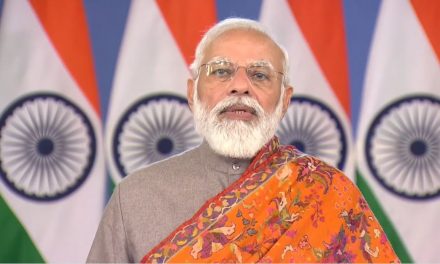Yesterday I was listening to BBC Radio 4’s Digital Human series and its first episode which was about secrets. A definition of secrecy given in the introduction really caught the attention of my ears and inspired this article; described by a contributor as “the decision that there is more to be lost than gained by revealing information“, I wondered how much we as a community have to gain if we can learn to be 100% honest with each other and ourselves.
Why do we need to be free from secrecy? A documentary we produced at NAUJAWANI.com called ‘The Renaissance’ features Californian rapper Jagmeet Singh ‘Hoodini’ who shared with us this golden truth – “when you’re totally honest, you don’t have to remember anything“. Unfortunately in society the opposite is promoted, the stereotype of a strong person is usually one who is quiet, dignified and ‘a rock’. A strong person doesn’t talk more than they need to, nor do they share more than they need to. Whether this idea comes from the stiff, upper-lipped, British middle-classes or from the South Asian sub-continent, it plays an important part in obstructing our ability to have open and honest communication. Personally speaking, I once carried many burdens of self-doubt, but as I’ve grown into an adult, my mind has found clarity the more I have learnt to let go and accept myself. We need to be honest with ourselves if we want to feel free and unbound mentally.
While there are some thinkers who believe it is better to keep secrets, I’m becoming happier to share more and more of my life and my struggles out in the open. Whether it’s inviting people over to my home and being worried they might ‘learn or see too much’ or being worried people will be exposed to my flaws, I’m in a constant battle against myself. We all make mistakes, and my favourite film ever ‘Dead Man Walking‘ taught me the ability to forgive literally anything, all we need is enough compassion. Learning to be compassionate with ourselves, means we can be compassionate with each other and therefore become the healthiest version of ourselves. And surely we all want that right?
The Journal of Adolescence found that teens who share their secrets are more likely to have good mental health and maintain close relationships. I remember as a kid that sharing a secret was a great fast-track way to go from ‘friend’ to ‘homie-4-lyfe’! So as well as being a showcase of trust, it is healthy. As we grow older though, we become more guarded and no longer adolescents, we can feel suffocated as there are few ways to relieve pressure.
But there’s hope. Recently there’s been a new wave of apps such as ‘Secret‘ and ‘Whisper‘, which allows users to relieve the pressure of keeping things secret and be openly honest in the tiny pockets of an internet that is otherwise full of ideal and perfect personalities. These apps appear to be providing a breathing space, whilst websites such as ‘PostSecret‘ make these stories personable and real through actual handwriting. Another app which I’m a massive fan of is StoryCorps which guides one through how to hold an interview of somebody close to you in your life. It facilitates a dialogue which is not only honest, but recorded for generations to come to be able to take wisdom from.
Not only are people destroying secrecy privately and online, but also in very real public settings. Last week, the Nobel-winning German writer Guenter Grass passed away. He was famous for writing a lot of great literature, but one thing which stands out about his life is that he admitted to serving in the Waffen-SS as a teenager – the combat arm of Adolf Hitler’s notorious paramilitary organisation. Others were forced and cornered to admit such shameful behaviour, but he went public without prompt. I can’t imagine hearing somebody admit to many things worse. Strangely there’s a world of public shaming that has emerged to a similar, but lesser extent, driven by entertainment and building empathy. ‘Mortified Nation‘ is a documentary that has given rise to ‘Mortified’ events around the world where people bring their diaries in a public setting to share their embarrassing journaling as teenagers. This is usually followed by the audience laughing nervously, some happy their upbringing wasn’t as bad, and others realising it was.
But what about us Sikhs? Considering how we have traditionally had open-forum mechanisms such as the Sarbat Khalsa (gathering of the entire Sikh Panth to make collective decisions democratically), how have we as a community forgotten to be honest publicly and eliminate secrecy amongst groups within? We now rely heavily on TV shows with a strong Jeremy Kyle vibe, such as ‘Panth Time’ to ensure that we exert our energy on mundane matters instead of striking at the root causes of our problems; or perhaps poorly organised ‘Jathebandi’ meetings to discuss reactionary strategies without any clear agenda, timings or general professionalism.
But it’s not just as a community where we suffer, our communication skills are exceptionally bad within our families. Far too many households have ‘family secrets’ which are rarely shared amongst the younger generations, let alone outside the family. In South Asia, we have a long history of voicing unheard stories with the intention to either empower victims or destroy the victimisers. Having open conversations is something we learn from Guru Nanak and his discourse with the Sadhus (recorded in the Siddh Gost) and as recently as the 1980s we have the example of Sant Jarnail Singh Bhindranwale who kept an open forum for anyone to speak to him in full public view, whether looking for help in personal problems or to discuss community issues. Unfortunately the only safe spaces which come to mind in modern Britain are art events such as Saffron Mic where artists are free to express themselves and be emotionally vulnerable with the community in a public setting. This is nowhere near enough. I personally want to be done with secrets and destroy the fear of finding our true self. Let’s outwrestle the strangle-hold and find the deepest parts of ourselves to share with the world, with the power and grace that we are all capable of.






